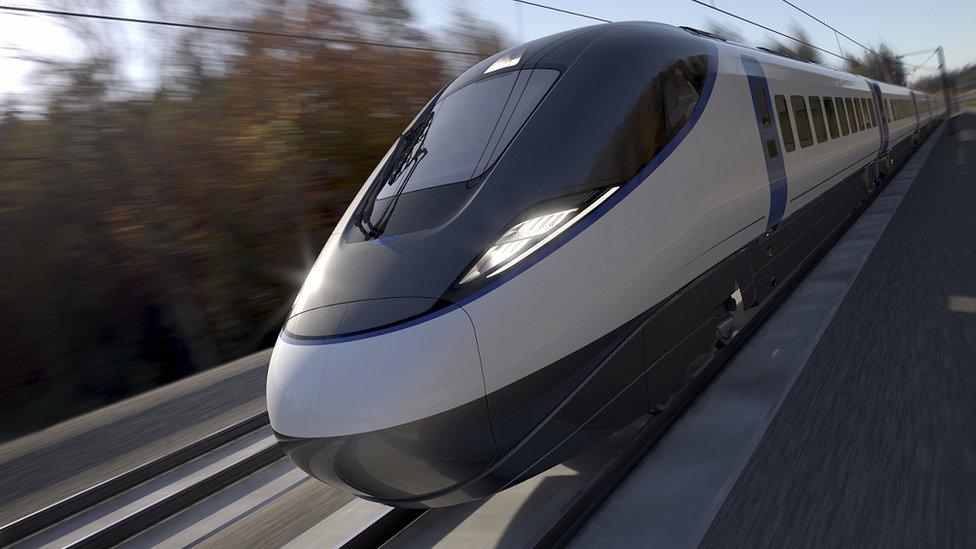HS2: Euston work carries on regardless of concerns
- Published
- comments
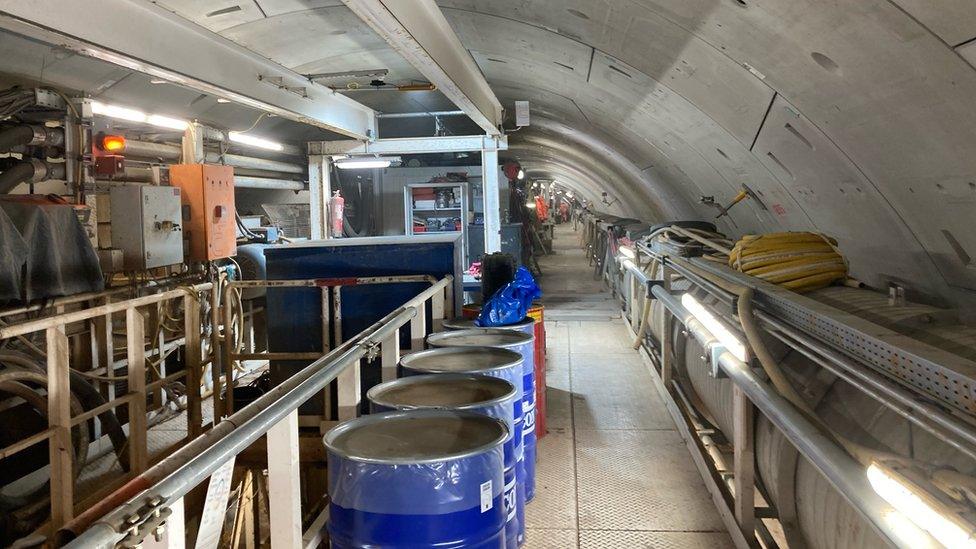
The tunnel-boring machines (TBMs) have been going for a year
It is one of the most divisive, expensive and controversial construction projects in the UK.
The rail link High Speed 2 (HS2) was meant to link London Euston to the north via Birmingham.
It would shorten journey times but crucially free up capacity on the existing routes for more local services and freight.
The scheme though has now been cut so the route will only go from London to Birmingham.
It's not clear if it will go from Euston or Old Oak Common as the funding at Euston seems dependent on private developers.
Work at Euston has been paused for two years.
It has always faced opposition but much of the work around Euston and the drilling of the huge tunnels going into Old Oak Common has started.
So what is the view from inside the project?
We took a truck to travel the 2 miles or so into the tunnel.
The tunnel-boring machines (TBMs) have been going for a year. Here, away from the headlines, work is carrying on 24/7.
Dark brown soil is shipped back to the portal on long conveyor belts.
The huge machine creeps along at 55mm a minute. Every hour the boring machine pauses and a concrete ring is slotted into place to hold up the tunnel.
It is hard, noisy work, with the engineers doing eight-hour shifts.
The tunnels seem much larger than the Crossrail tunnels. The trains in here will travel much faster and generate more heat, so the tunnels need to be larger to allow that to dissipate. There are even toilets and rest facilities on board the borer.
The geology on Crossrail was mainly London clay; in the suburbs the soil is much more varied.
Michael Greiner, head of tunnelling, said: "It is an extremely large-scale project and worldwide one of the biggest ones ever executed. We have got different geologies and we have varying geology, which has its challenges."
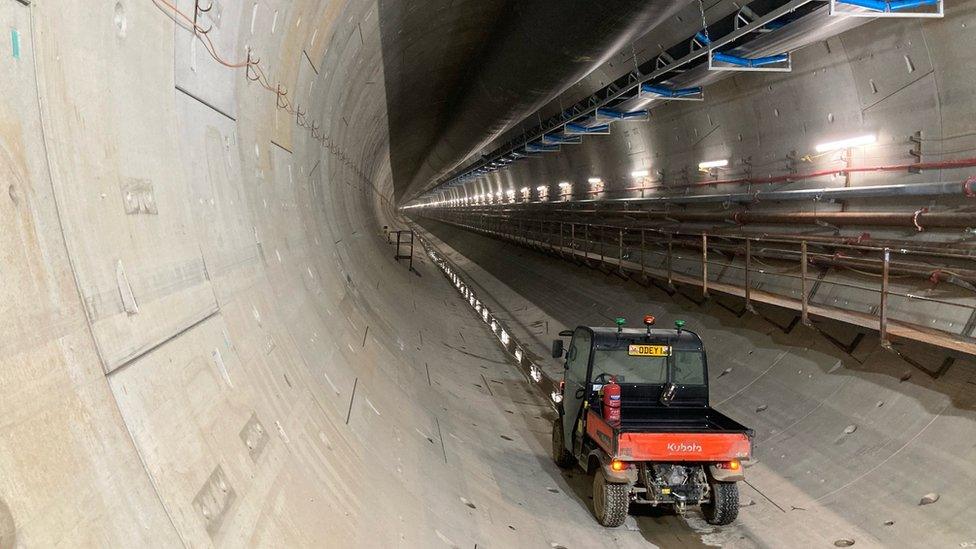
The tunnels need to be large enough to let heat generated by high-speed trains to dissipate
The boring has not been without issues. At Ruislip Rugby Club, pools of foam rose to the surface and drilling had to be paused.
"It was not that nice an occurrence and people might have been worried. But from an engineering perspective or environmental perspective, there was at no point anything to worry about - all our settlements are within the predicted limits," said Mr Greiner.
Locals have also suffered disruption - as we have covered many times - with many people in west and north-west London opposing the scheme as they fail to see any benefits. Many along the line have lost their homes.
The uncertainty and changes to the project have also been challenging for those working on it.
Mr Greiner said: "Changes to the time schedule, changes to the methodology and the workflow. It's also creating a little bit of unsureness about the supply chain.
"We are not working alone over here - we have a lot of suppliers, a lot of labour, a lot of subcontractors."
So is the scheme worth it now? Is there any point having a slightly faster link between London and Birmingham?
James Richardson is the managing director for SCS JV, the company creating the tunnels: "For me the construction follows the politics. It follows the economic benefit of infrastructure. I think that what's happened this week is there's obviously a real balance the government is trying to find.
"It's disappointing that we can't really take it all the way to Manchester. It still benefits as we are still taking a lot of traffic off that West Coast Main Line.
"I think there's two parts there - a better commute into Birmingham and more capacity between the cities."
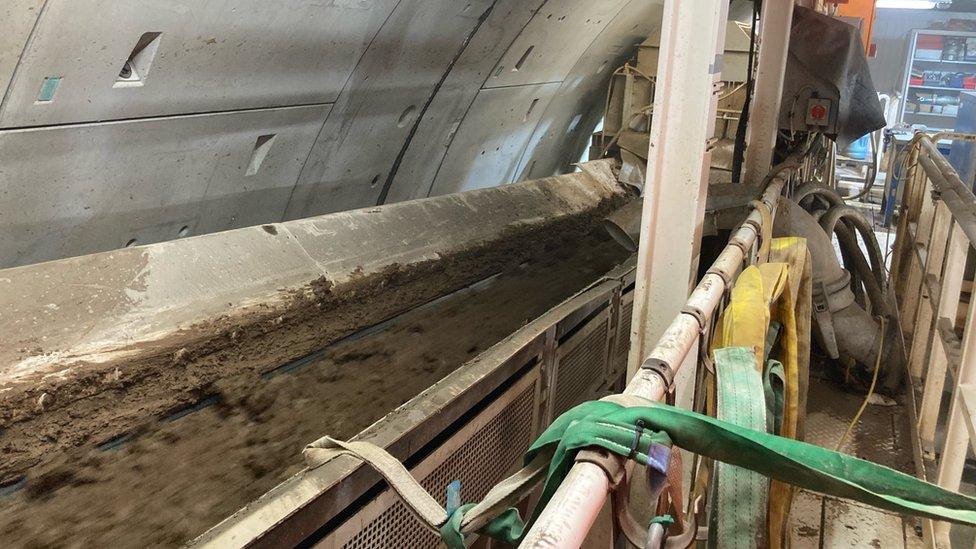
Dark brown soil is shipped back to the portal on long conveyor belts
There are still many, many questions about the project, not least where the terminus will be in the capital.
Some have called it a white elephant and a waste of money.
But here away from the headlines and the politics - the drilling continues.
Related topics
- Published19 July 2023
- Published7 July 2023
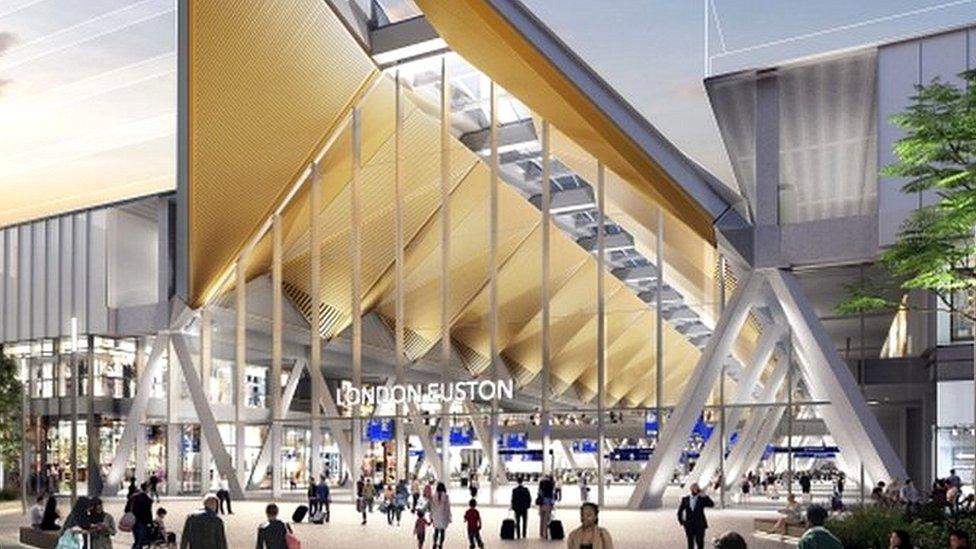
- Published27 March 2023
